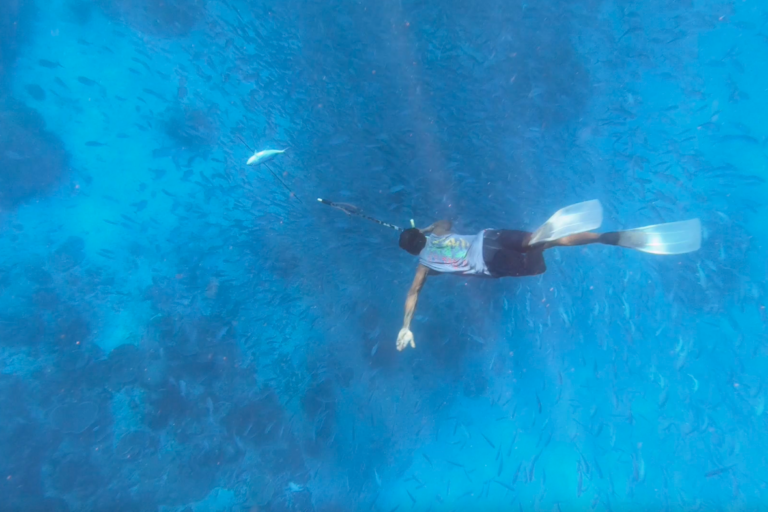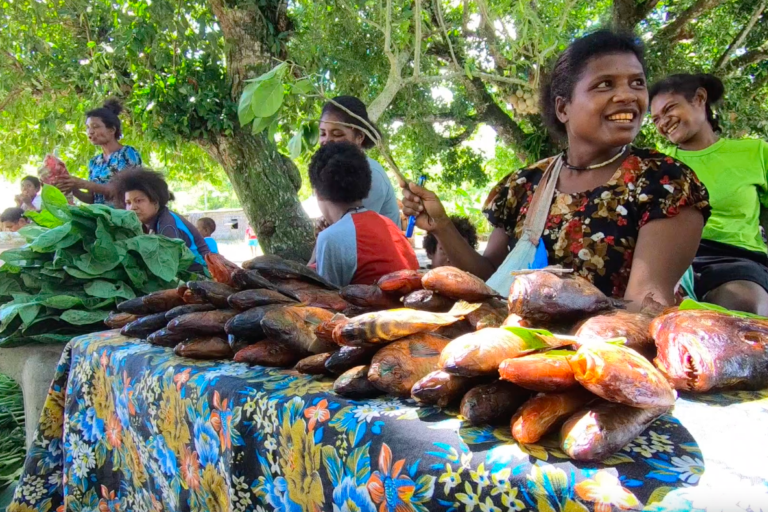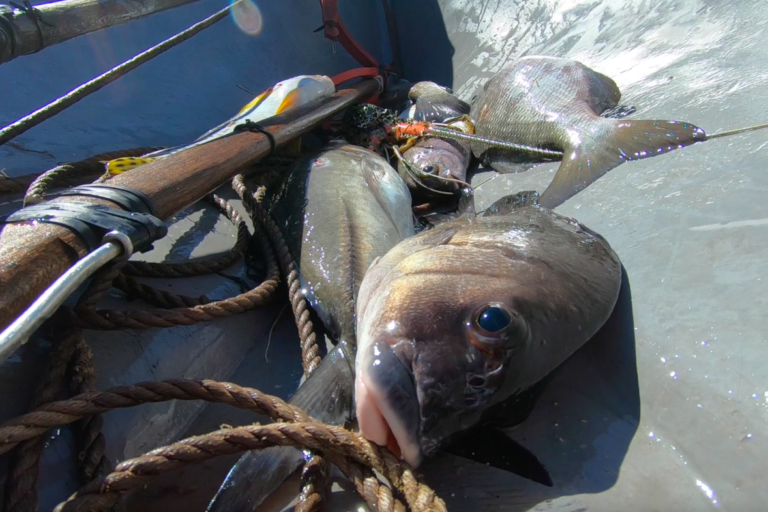- The majority of 72 coastal communities studied in five countries in the Indo-Pacific region may face significant losses of agricultural and fisheries products — two key food sources — simultaneously under the worst-case climate change projections, a new study shows.
- These potential losses may be coupled with other drivers of change, such as overfishing or soil erosion, which have already caused declining productivity, the study adds.
- But if carbon emissions can be effectively managed to a minimum, the study’s authors say, fewer communities would experience losses in both the agriculture and fisheries sectors, indicating the importance of climate mitigation measures.
- The current global average temperature is 1.1°C (2°F) above pre-industrial times, and climate experts have warned that it could climb to about 3°C (5.4°F) higher by the end of this century if nothing changes.
JAKARTA — Coastal communities in the tropics that rely heavily on both agriculture and fisheries are most vulnerable to the losses caused by high global carbon emissions, a new study says.
It looked at coastal communities in five countries within the Indo-Pacific region and found that most may face significant losses of agricultural and fisheries products — two key food sources — simultaneously in the event of the worst-case impacts of climate change. These potential losses may be coupled with other drivers of change, such as overfishing or soil erosion, which have already caused a decline in productivity, according to the study published July 5 in the journal Nature Communications. When looked at separately, the potential losses for the fisheries sector would be greater than for agriculture, the research showed.
But if carbon emissions can be effectively managed to a minimum, the study’s authors said, fewer communities would experience losses in both the agriculture and fisheries sectors.
“Research in these sectors and the policy prescriptions that come from them are happening in isolation, but in reality they are tightly linked,” Joshua E. Cinner, the study’s lead author and a marine researcher at Australia’s James Cook University, told Mongabay in an email. “About 2/3 of the 3,000 households we surveyed across 5 countries engaged in fisheries and agriculture simultaneously.”

The current global average temperature has increased by 1.1° Celsius (2° Fahrenheit) from pre-industrial times, and climate experts have warned that it could reach about 3°C (5.4°F) higher by the end of this century if nothing changes. Such a scenario is predicted to result in extreme weather events, such as droughts or marine heat waves, that would subsequently affect productivity in agriculture and fisheries.
Cinner and his colleagues from science centers in Europe, the U.S., U.K., Papua New Guinea, China, Kenya, Tanzania and Canada analyzed responses from more than 3,000 in-person household surveys. They then cross-checked the results with modeled projections of crop yield losses and fish catches under the shared low and high emissions scenarios published by the Intergovernmental Panel on Climate Change (IPCC) at the United Nations.
“This work proves the suitability of using predictive models at smaller scales to improve the management of local communities,” co-author Marta Coll, a researcher at the ICM-CSIC marine science institute in Spain, said in a statement.
The researchers say their work is the first to assess the impacts of climate change on coastal communities in the tropics, which face more economic difficulties than their counterparts in temperate regions.
While projections of the simultaneous impacts of climate change on both fisheries and agriculture at the national level have been made, they mask substantial variations in how communities are expected to experience the climate effects, Cinner said.
He pointed to Indonesia, where his team found that the country, one of the biggest marine fisheries in the world, could face a 15% average loss in the sector. Some communities may experience three times those losses while others just a third, he said.
“I think the important thing to note is that in countries like Indonesia, there is a lot of variation among sites,” Cinner said, adding that he hoped to have future research that also integrates climate impacts to aquaculture and marine farming.


The authors called on the governments of the countries examined in the study — Indonesia, Madagascar, Papua New Guinea, the Philippines and Tanzania — to improve and expand their climate mitigation efforts, and also to prepare alternative livelihood programs outside the fisheries and agriculture sectors.
But they also noted that alternative jobs often failed and were not a viable substitute for mitigating climate change for the around 6 million coral reef fishers globally as they can’t provide specific social and psychological satisfaction from working in agriculture or fisheries.
“I am really hoping that this work gets scientists and policymakers who are working on fisheries and agriculture to stop treating these sectors [as if they were] operating in isolation,” Cinner said. “Our study shows how tightly coupled they are.”
Citation:
Cinner, J. E., Caldwell, I. R., Thiault, L., Ben, J., Blanchard, J. L., Coll, M., … Pollnac, R. (2022). Potential impacts of climate change on agriculture and fisheries production in 72 tropical coastal communities. Nature Communications, 13(1). doi:10.1038/s41467-022-30991-4
Basten Gokkon is a senior staff writer for Indonesia at Mongabay. Find him on Twitter @bgokkon.
FEEDBACK: Use this form to send a message to the author of this post. If you want to post a public comment, you can do that at the bottom of the page.













